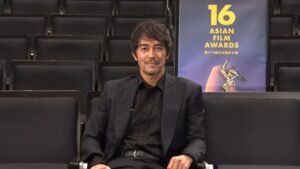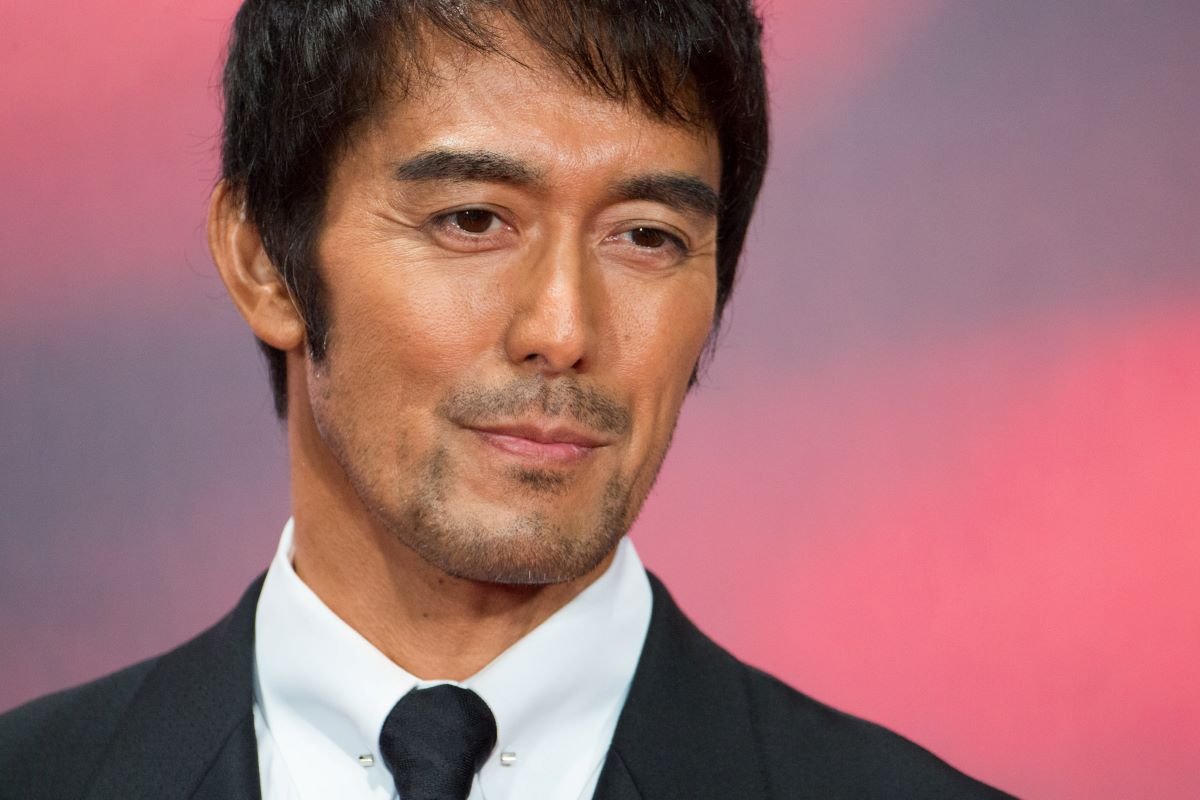Hiroshi Abe: A Study in Japanese Leading Men
- By -Maria Mash
- Posted on
- Posted in Actors
Hiroshi Abe is a prominent figure in Japanese cinema, known for his commanding screen presence, versatility, and ability to bring depth to a wide range of characters. Born in 1964, Abe has built a career spanning over three decades, establishing himself as one of Japan’s most respected leading men. From his early days as a model to becoming a beloved actor in both film and television, Abe’s journey reflects the evolution of Japanese leading men in contemporary cinema. This article explores Hiroshi Abe’s career, his contributions to Japanese film, and his role in redefining the modern leading man.

Early Career and Rise to Fame
Hiroshi Abe began his career in the entertainment industry as a model in the 1980s. With his tall stature and distinct looks, he quickly gained popularity and transitioned into acting. His early work in Japanese television dramas and romantic comedies helped establish him as a versatile actor capable of balancing humor and drama. One of his breakthrough roles was in the drama series Dragon Zakura (2005), where he played a tough yet inspiring teacher helping underperforming students prepare for university exams. This role showcased his ability to portray strong, charismatic characters, solidifying his reputation as a leading man in Japanese television.
Moreover, Abe’s early success in television opened doors to more substantial roles in film. He quickly became known for his ability to navigate diverse genres, from comedy to action to drama, reflecting his range and adaptability as an actor. His work during this period laid the foundation for his later success and cemented his status as a household name in Japan.
Versatility and Range in Film
Hiroshi Abe’s film career is marked by his versatility and ability to portray a wide spectrum of characters. He has taken on a variety of roles, from historical figures and action heroes to everyday men facing personal and societal challenges. His performances in films such as Thermae Romae (2012) and Still Walking (2008) highlight his capacity to balance comedic timing with deep emotional expression. In Thermae Romae, Abe’s portrayal of a Roman architect who time-travels to modern-day Japan was both humorous and engaging, earning him widespread acclaim and box-office success.
In addition, Abe’s role in Still Walking, directed by Hirokazu Kore-eda, showcased his talent for understated, naturalistic acting. In this family drama, Abe plays a son who returns home for a family gathering, grappling with unresolved tensions and regrets. His performance was praised for its emotional depth and authenticity, demonstrating his ability to capture the complexities of human relationships. This film marked a turning point in Abe’s career, reinforcing his status as a leading man capable of delivering powerful and nuanced performances.
Redefining the Modern Japanese Leading Man
Hiroshi Abe has redefined what it means to be a leading man in contemporary Japanese cinema. Unlike the traditional archetypes often associated with Japanese male leads—either stoic and silent or intensely emotional—Abe’s characters tend to embody a more nuanced blend of strength, vulnerability, and relatability. His roles often portray men who are both strong and introspective, breaking away from conventional stereotypes and presenting a more balanced and realistic portrayal of masculinity.
Furthermore, Abe’s ability to seamlessly shift between genres and characters has allowed him to remain relevant and respected in the ever-evolving landscape of Japanese film. His work with acclaimed directors like Hirokazu Kore-eda, Kiyoshi Kurosawa, and Yoji Yamada has positioned him as a versatile actor who can bring depth to any role, be it a comedic protagonist, a romantic lead, or a contemplative character in a family drama.
International Recognition and Cross-Cultural Appeal
Hiroshi Abe’s talent has not gone unnoticed beyond Japan. His work in internationally recognized films such as Still Walking and After the Storm (2016) has introduced him to global audiences, earning him acclaim for his naturalistic performances and strong screen presence. These films, often showcased at major international film festivals, have helped to elevate Abe’s profile and underscore his ability to resonate with audiences worldwide.
Additionally, Abe’s performances have contributed to the global appreciation of Japanese cinema, bringing attention to the quality and depth of contemporary Japanese storytelling. His roles often explore universal themes such as family, loss, and personal growth, making them accessible to international viewers while retaining a distinctly Japanese sensibility.
Enduring Legacy and Influence
Hiroshi Abe’s contributions to Japanese cinema extend beyond his performances. His choice of roles and collaborations has helped to elevate the status of contemporary Japanese films on the global stage. Abe’s dedication to his craft, coupled with his ability to adapt and evolve, ensures his continued relevance in the industry.
Moreover, Abe’s influence can be seen in the next generation of Japanese actors who look up to him as a model of versatility and longevity. His career serves as an example of how an actor can maintain artistic integrity while achieving both critical and commercial success.
Conclusion
In summary, Hiroshi Abe has redefined the role of the leading man in Japanese cinema through his versatility, depth, and ability to navigate diverse genres and characters. From his early days as a model to becoming one of Japan’s most respected actors, Abe’s journey reflects the evolution of Japanese film and the changing landscape of what it means to be a leading man. His impact on Japanese cinema, both domestically and internationally, ensures his legacy as a quintessential figure in modern film history.



